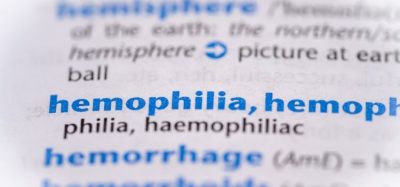AstraZeneca’s tezepelumab and dapagliflozin accepted for use in Scotland
Posted: 8 August 2023 | Catherine Eckford (European Pharmaceutical Review) | No comments yet
The Scottish Medicines Consortium (SMC)’s acceptance means eligible patients across the UK can now benefit from AstraZeneca’s Tezspire (tezepelumab) for severe asthma and Forxiga (dapagliflozin) for chronic heart failure.


Credit: Alexanderstock23 / Shutterstock.com
Two of AstraZeneca’s key medicines have been recommended for use within NHS Scotland by the Scottish Medicines Consortium (SMC).
Tom Keith-Roach, President of AstraZeneca UK announced: “We are pleased that the SMC has now accepted Forxiga (dapagliflozin) for use in patients with chronic heart failure with preserved or mildly reduced ejection fraction and Tezspire (tezepelumab) has been accepted for restricted use in severe asthma within NHS Scotland.”
First-in-class medicine tezepelumab now has the widest patient access for any severe asthma biologic in Scotland. The SMC has recommended the biologic as an add-on maintenance treatment for patients over 12 years, with severe asthma who are inadequately controlled despite high dose inhaled corticosteroids plus another medicinal product for maintenance treatment.
The SMC’s acceptance is based on data from PATHFINDER clinical trial programme, including the NAVIGATOR Phase III trial, which showed a 56 percent reduction in the annualised asthma exacerbation rate (AAER) for tezepelumab versus placebo.
Pre-filled asthma pen approved for self-administration in EU
AstraZeneca’s chronic heart failure medicine
Dapagliflozin’s acceptance is based on the DELIVER Phase III trial, which showed that dapagliflozin was more effective than placebo in patients with HF with LVEF >40. It reduced the risk of a primary composite outcome of either worsening heart failure which was defined as either an unplanned hospitalisation for heart failure or an urgent visit for heart failure; or cardiovascular death.
AstraZeneca’s dapagliflozin has been accepted for symptomatic chronic heart failure with left ventricular ejection fraction (LVEF) >40 percent. As it is already accepted for use in Scotland as a treatment option for heart failure patients with reduced ejection fraction (LVEF ≤40 percent), dapagliflozin can be used for chronic heart failure, regardless of ejection fraction.
Outcome of the SMC’s acceptance
AstraZeneca stated that approximately 4,000 people in Scotland may be eligible for tezepelumab to treat their severe asthma. More than 23,000 Scottish patients could be eligible for dapagliflozin treatment for symptomatic chronic heart failure with left ventricular ejection fraction (LVEF) >40 percent.
Overall, SMC’s decisions will enable eligible patients across the UK to be treated with tezepelumab and dapagliflozin, which are already approved by the National Institute for Health and Care Excellence (NICE).
Related topics
Biologics, Biopharmaceuticals, Clinical Development, Clinical Trials, Drug Development, Drug Markets, Drug Safety, Industry Insight, Regulation & Legislation, Research & Development (R&D), Therapeutics
Related organisations
AstraZeneca, National Institute for Health and Care Excellence (NICE), NHS Scotland, Scottish Medicines Consortium (SMC)









